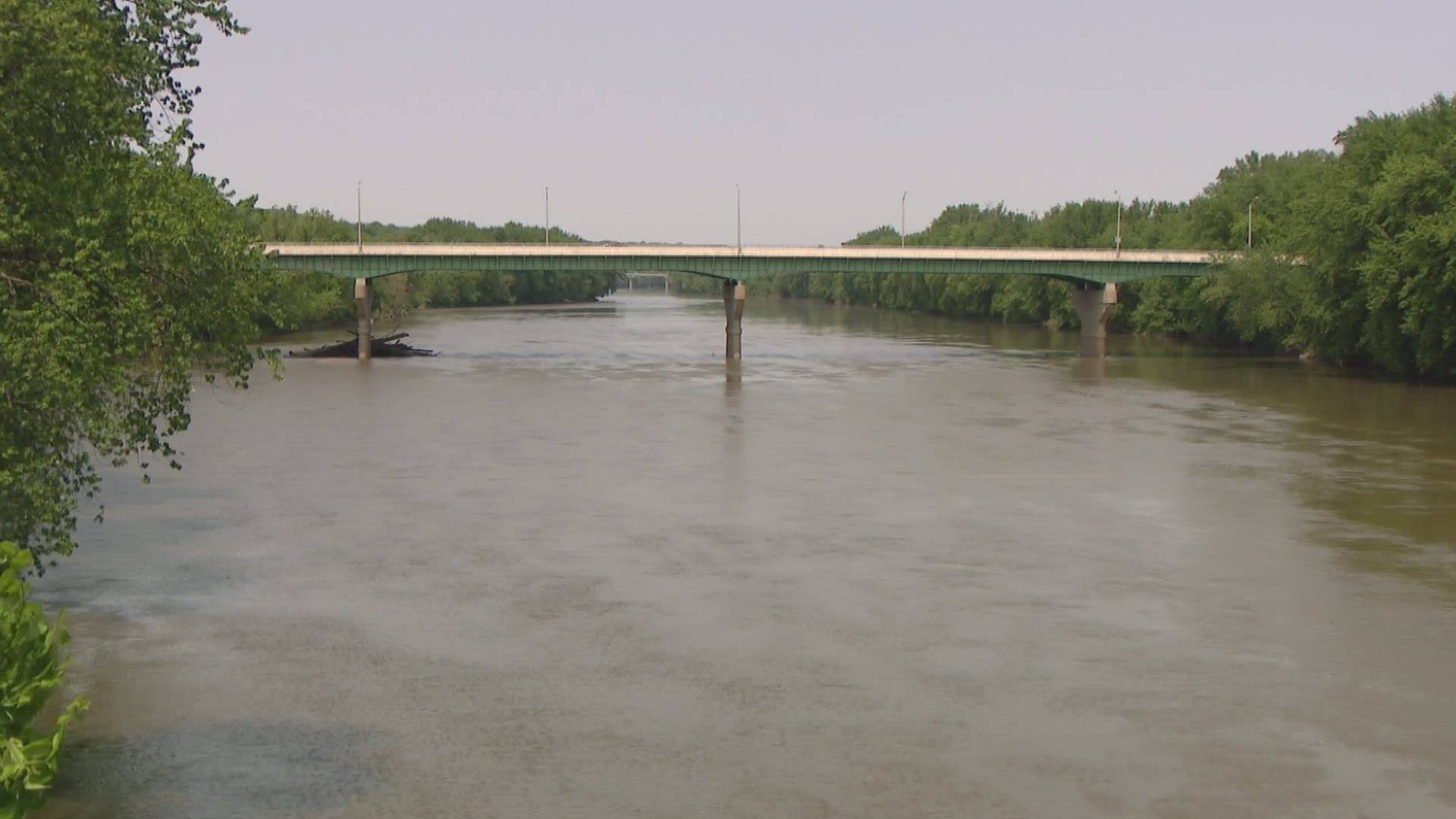TIPPECANOE COUNTY, Ind. — A controversial pipeline project that could divert billions of gallons of water from Lafayette to Lebanon is now facing a new setback.
Monday morning, Tippecanoe County commissioners voted to impose a moratorium that temporarily stops the project from moving forward.
The three-member commission voted unanimously to implement a nine-month moratorium that blocks high-volume water exports from Tippecanoe County. The approved resolution also temporarily prohibits the construction of high-volume radial collector wells, the type of wells that are needed to collect and pump water for the ambitious pipeline project.
Before the vote took place, commissioners told attendees they have authority to regulate excavating and drilling in the county and to regulate use of property that could endanger public health, safety and welfare. After the vote – which was met with applause from the crowd – commissioner Tom Murtaugh told 13News the action was intended to give state lawmakers time to pass a law that addresses controversial water projects.
“If for some reason the legislature does not act, then we can extend that moratorium. But our goal is to slow this down until we can get some data and legislation in place to protect the citizens of Tippecanoe County,” Murtaugh said.
Leaders in Tippecanoe County have been concerned about the pipeline project since first learning about it a year ago. The project is being led by the Indiana Economic Development Corporation, which has already spent $10 million to study, design and plan the pipeline.
RELATED: Indiana spends millions on proposed pipeline plan as state agency remains silent and hides details
Despite the state’s extensive plans, Murtaugh and other local leaders have told 13News they only learned about the project second hand – not from the IEDC – and they say the state agency has not been fully forthcoming when it comes to the details of the project.
13 Investigates has been trying to get those details for months, submitting multiple requests to the IEDC under Indiana’s Access to Public Records Act. The state agency has released only a handful of records, and most of those have important details about the pipeline project blacked out.


The IEDC is continuing to hide the vast majority of the records requested by 13News, including management plans, risk assessment plans, engineering schedules, sustainability summaries, environmental impacts, project maps, and at least two dozen other documents the state agency has already commissioned and paid for. An IEDC attorney told 13News he believes the agency has a right to withhold public documents that are considered deliberative.
13News has filed a formal complaint with the Indiana Public Access Counselor that alleges the IEDC is improperly withholding the records in violation of state law.
In response to Monday morning’s vote in Tippecanoe County, the IEDC blasted the commission’s actions.
"This action has zero practicality and was moot from its introduction,” wrote IEDC deputy chief of staff Erin Sweitzer. “The only thing occurring in the area is testing to gather data around water capacity. There has never been a scenario in which water would be pumped in the next nine months. Thus, this was a clear action to stoke further rhetoric and misinformation."
Murtaugh said that commissioners understand that no water would be pumped in the near future. He said the vote was still necessary to prevent the state agency from signing more contracts within the next nine months to move forward with the pipeline.
“We don’t think there was going to be water pumped in the next nine months, but this is important to have in place so contracts on the state level cannot be signed. If they signed a contract and we didn’t have a moratorium in place, there wouldn’t be anything we could do to stop that contract,” he said.
The IEDC’s proposed pipeline would divert up to 100 million gallons of water per day from an aquifer under the Wabash River to a massive high-tech industrial project that IEDC has created in Boone County. The IEDC says the LEAP project outside of Lebanon would not have enough water if it is successful in attracting major high-tech industries. The pipeline would solve that problem, according to the IEDC, bringing in water from the north and then dumping the wastewater in the Eagle Creek reservoir basin to the south.
The IEDC says preliminary test results show there is ample water flow within Wabash River aquifers to supply the LEAP project in Boone County without impacting residents or businesses in Tippecanoe County.
Critics of the state agency are skeptical, pointing out a conflict of interest because the IEDC is funding water tests for its own pipeline project. Gov. Eric Holcomb recently addressed that concern by removing testing oversight from the IEDC and instead assigning that responsibility to the Indiana Finance Authority.
In recent months, a growing number of state lawmakers and gubernatorial candidates have spoken out against the LEAP pipeline project, calling for a pause to more thoroughly study the potential impact of a pipeline before it is constructed. Leaders in the Republican-controlled Indiana General Assembly have indicated they likely will not address water controversies during the upcoming legislative session, which begins in January.

